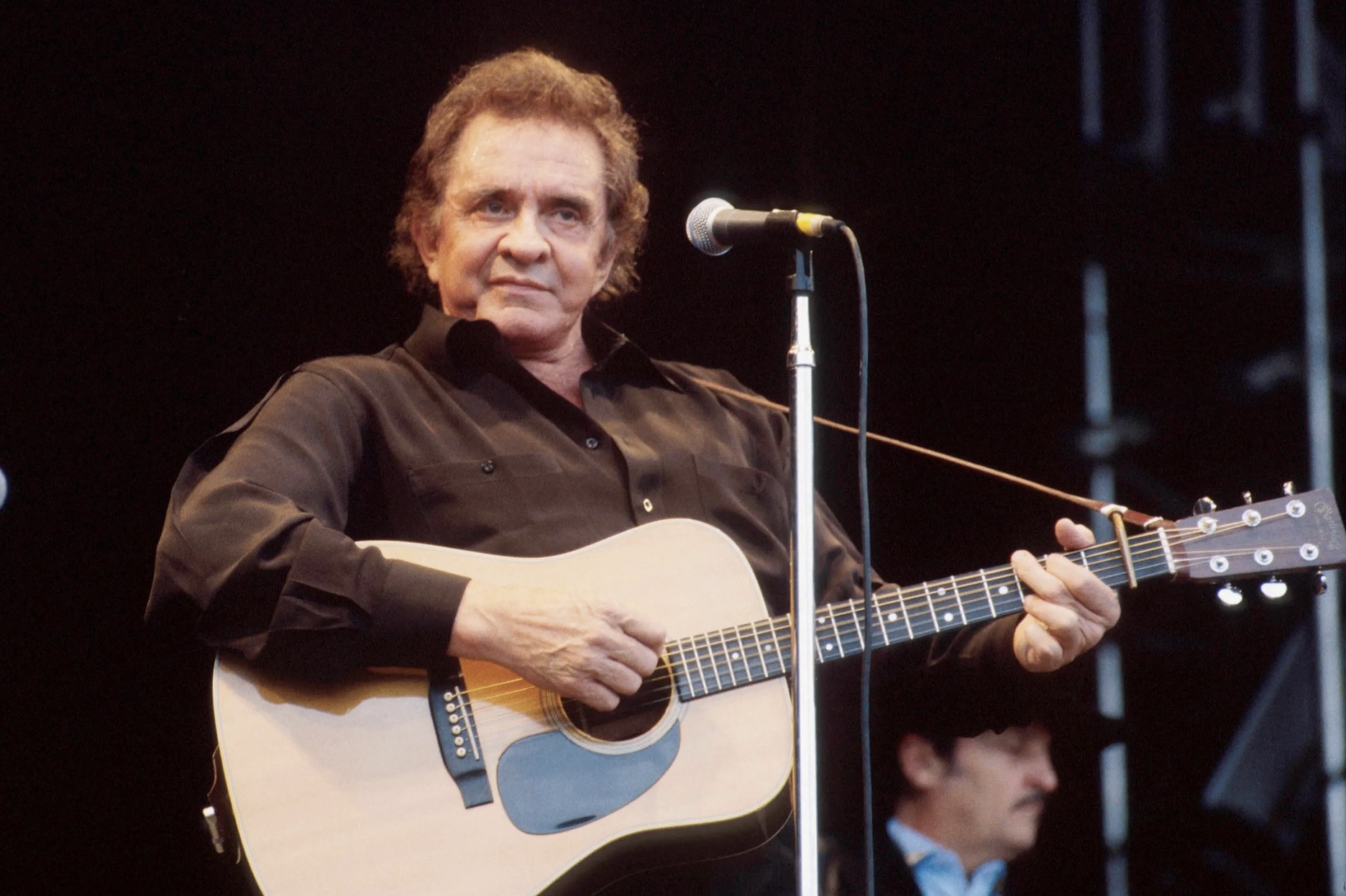
Johnny Cash, the name alone conjures up images of a man clad in black, his baritone voice resonating with tales of hardship, redemption, and the human spirit. Born John R. Cash on February 26, 1932, in Kingsland, Arkansas, his life was a tapestry woven with threads of struggle and triumph, a testament to the enduring power of music.
From his early days picking cotton in the fields of Arkansas, Cash’s life was steeped in the rhythms of gospel and the blues. This foundation would inform his distinctive sound, a blend of country, rock and roll, and gospel that defied categorization. His deep, resonant voice, coupled with the signature “boom-chicka-boom” of his Tennessee Three backing band, became instantly recognizable, carving out a unique space in the landscape of American music.

Cash’s career took flight in the 1950s with Sun Records, where he recorded iconic hits like “I Walk the Line” and “Folsom Prison Blues.” These songs, along with countless others, resonated with audiences from all walks of life, speaking to the shared human experiences of love, loss, and the search for meaning. His music transcended genre, appealing to fans of country, rock and roll, and folk alike.
Despite his success, Cash’s life was marked by personal struggles. His tumultuous first marriage to Vivian Liberto and his battles with drug addiction cast shadows on his path. Yet, these experiences also fueled his music, adding a raw authenticity that resonated deeply with his fans. His legendary live albums, At Folsom Prison and At San Quentin, recorded in the stark settings of correctional facilities, stand as powerful testaments to his ability to connect with audiences on a profound level.

In 1968, Cash married singer June Carter, a pivotal moment in his life. June became his anchor, helping him navigate his personal struggles and inspiring some of his most heartfelt music. Their duets, such as “Jackson” and “If I Were a Carpenter,” are timeless classics, capturing the essence of their deep love and musical partnership.
Cash’s later career saw him exploring new musical territories, collaborating with artists across genres, and solidifying his status as a true icon. His series of albums produced by Rick Rubin in the 1990s introduced him to a new generation of fans, proving that his music transcended generations.
Though Johnny Cash passed away on September 12, 2003, his legacy lives on. His music continues to inspire and influence countless artists, his songs echoing through the years with a timeless quality. The Man in Black, with his unwavering authenticity and his profound connection to the human experience, remains an enduring figure in the history of music.
The Best Johnny Cash Songs of All Time
Johnny Cash’s cover of “Hurt” by Nine Inch Nails is a haunting and powerful rendition that delves into themes of pain, regret, and mortality. Released in 2002 as part of his American IV: The Man Comes Around album, Cash’s version is widely regarded for its raw emotional depth. With his weathered voice and a stripped-down arrangement, Cash imbues the song with a sense of vulnerability, reflecting on life’s hardships. The accompanying music video, set in Cash’s own museum, further emphasizes the song’s poignant message.